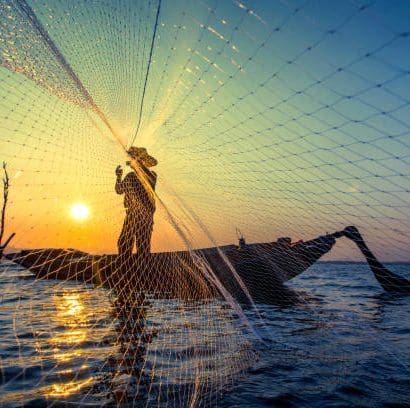
Have you ever wondered what it’s like to wake up before the sun rises, feel the sea breeze on your face, and earn your living from the water? That’s what fishing for a living is all about. It’s more than just a job—it’s a way of life, a tradition passed down through generations, and a brave choice in a modern world.
Let’s dive into the world of professional fishermen, their challenges, triumphs, and the magic of making a living from the sea.
Contents
- What Does Fishing for a Living Really Mean?🐟
- Why People Choose Fishing as a Job🐟
- The Day-to-Day Life of a Fisherman🐟
- Challenges of Fishing for a Living🐟
- The Joys and Rewards of the Job🐟
- How Fishing Helps Local Communities🐟
- What the Future Holds for Fishing as a Career🐟
- Is Fishing for a Living Right for You?🐟
- A Life Built on Water🐟
What Does Fishing for a Living Really Mean?🐟

To put it simply, fishing for a living means that your main job is catching fish or seafood to sell. But in reality, it’s so much more than throwing a net into the water and pulling out dinner. It involves skill, patience, and deep respect for nature.
The Different Ways People Fish Professionally
There isn’t just one way to fish. Here are the main types of fishing jobs people do:
- Artisanal fishing: Small boats, often run by families, catch fish to sell locally.
- Commercial fishing: Bigger boats with large crews travel far from shore to catch large amounts of fish.
- Aquaculture: Farming fish in tanks or ocean pens instead of catching them wild.
These paths may seem different, but they all require hard work, knowledge of the sea, and the ability to adapt.
Why People Choose Fishing as a Job🐟
At first glance, some might think, “Why choose such a hard life?” But many fishers will tell you it’s not just about the money.
Here are a few powerful reasons why people choose this path:
- Tradition: Many are born into fishing families and learn from a young age.
- Freedom: Some love being their own boss and working in nature.
- Passion: For many, the sea is their happy place, and they wouldn’t trade it for anything.
Still, even if it’s rewarding, fishing for a living comes with big challenges.
The Day-to-Day Life of a Fisherman🐟
Now, let’s take a look at what a typical day looks like. Spoiler alert: it’s not your average 9-to-5 job.
Early Mornings, Long Days
Most fishers start their day before dawn. Some head out in the dark, guided by the moonlight. Others prepare their gear on the shore. Either way, it’s a race against time and tide.
Hard Work on the Water
Once out at sea, they drop nets, check traps, or cast lines. It might sound peaceful, but it’s physically demanding. There’s lifting, sorting, gutting, and keeping everything cold. And yes, it gets messy.
“You don’t control the sea. You just try to work with it,” says Pedro, a fourth-generation fisherman from Mexico.
Coming Home, Selling the Catch
After hours on the water, fishers return to shore. Next comes cleaning, weighing, and selling the catch. Some head straight to fish markets. Others supply restaurants or even export their fish overseas.
After a long day at sea, many fishers enjoy cooking what they catch. If you’re curious about delicious ways to prepare sardines, don’t miss our 5 Recipes with Sardina Fish that are easy, tasty, and straight from the ocean to your plate.
Challenges of Fishing for a Living🐟
While the ocean is full of wonders, it’s not always kind. Here are the main obstacles fishers face:
1. Weather and Safety Risks
Storms, strong waves, and equipment failures can turn a trip dangerous. Unlike office jobs, fishers risk their lives.
2. Fluctuating Prices
The price of fish can change fast. One day’s catch might be worth a lot—another day, not so much.
3. Overfishing and Sustainability
Fishers today need to be smart. Catch too much, and there may be none left for tomorrow. That’s why many now follow rules and limits to protect fish populations.
The Joys and Rewards of the Job🐟
Despite the risks, many fishers wouldn’t trade their job for the world. Here’s why:
- Beautiful scenery: Watching the sunrise over the ocean every day? Not bad.
- Strong community ties: Fishing villages are close-knit and supportive.
- Sense of pride: Catching food that feeds families brings deep satisfaction.
How Fishing Helps Local Communities🐟
Beyond personal rewards, fishing for a living helps whole communities thrive.
Economic Benefits
Fishing provides jobs—not just for fishers, but for:
- Fish sellers
- Ice makers
- Boat repair workers
- Fish market vendors
This cycle supports entire towns, especially in coastal areas.
Cultural Value
Fishing traditions often come with stories, festivals, and songs. In many places, fishing is part of who people are.
What the Future Holds for Fishing as a Career🐟
Of course, things are changing. Climate change, technology, and new laws affect how people fish. But that doesn’t mean the end—just a new chapter.
A Growing Focus on Sustainability
Today, many fishers use eco-friendly methods like:
- Selective nets that avoid catching baby fish
- GPS to avoid overfished zones
- Releasing non-target species back into the sea
New Tools and Tech
Some fishers now use apps to track weather, fish prices, and even fish behavior. Drones, sensors, and online auctions are becoming part of the job.
Is Fishing for a Living Right for You?🐟
Let’s be honest—it’s not for everyone. But if you love nature, don’t mind hard work, and want a life full of adventure, this could be your calling.
Before You Start
Ask yourself:
- Do I enjoy working with my hands?
- Am I okay with getting up early (really early)?
- Can I handle risk and uncertainty?
If you answered yes, you might just be a future fisherman—or fisherwoman!
A Life Built on Water🐟
Fishing for a living is a career of heart, heritage, and hustle. While it’s not easy, it offers rewards that few other jobs can match: freedom, connection, and purpose.
And just like the ocean, it continues to evolve. The ocean holds more than just fish—it also hides stunning places. If you love coastal life and adventure, check out Discovering Hidden Gems: Lesser-known Archipelagos You Must Explore to find your next magical escape.



